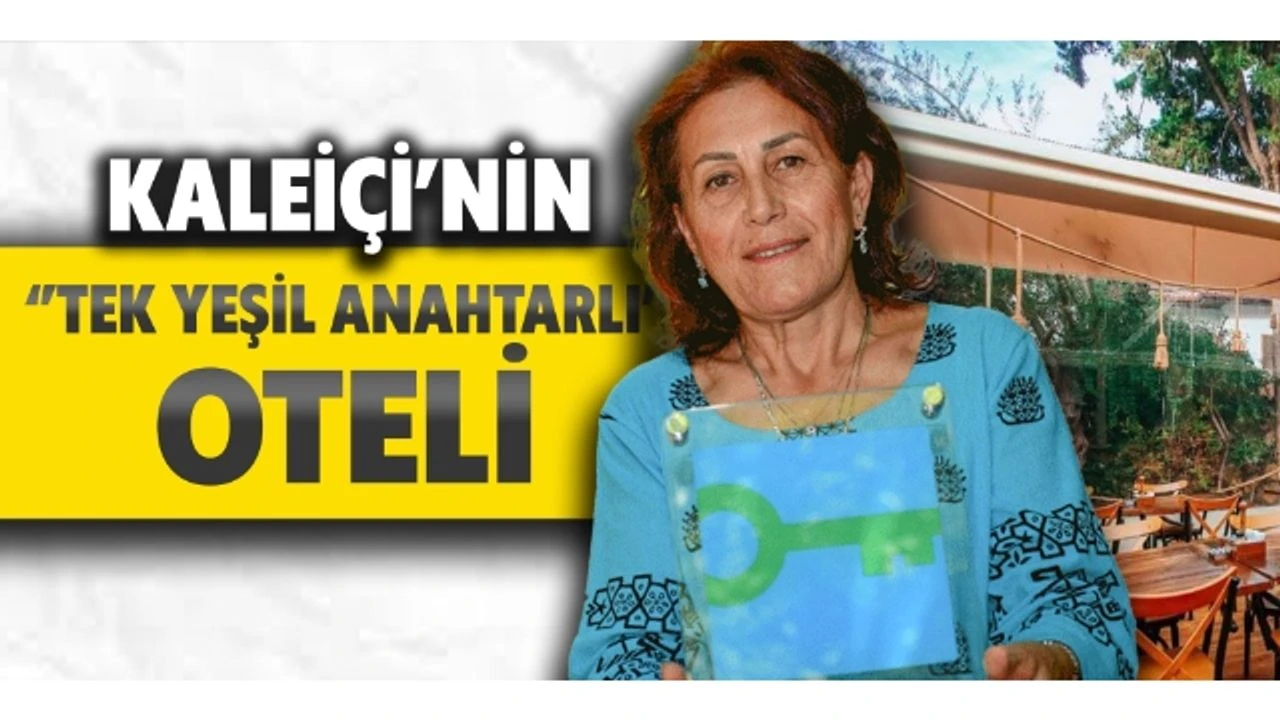
Sector: Tourism
Hadrianus Pension, located in Antalya’s Historic Old Town (Kaleiçi), represents a model of sustainable hospitality that harmoniously blends cultural heritage preservation with environmental responsibility. The hotel implements energy- and water-saving systems, minimizes single-use plastics, and uses renewable energy. Social sustainability is promoted through local sourcing, partnerships with women’s cooperatives, authentic local menus, and cultural events. Its garden supports biodiversity and exemplifies green hospitality in a historic urban setting.
Target Groups:
• Environmentally conscious travelers who seek responsible and authentic accommodation experiences.
• Local and international guests interested in heritage-based sustainable tourism.
• Hotel employees and suppliers who are trained and encouraged to adopt eco-friendly practices
Beneficiaries:
• Guests: Enjoy a meaningful, eco-friendly stay that combines comfort with cultural authenticity.
• Local Community: Gains economic and social benefits through local sourcing, cultural promotion, and tourism partnerships.
• Environment: Benefits from reduced energy and water consumption, improved waste management, and biodiversity conservation within the hotel’s green spaces.
Impact and Outcomes
Changes
• Energy and water consumption decreased significantly due to efficiency measures and the use of renewable energy sources.
• Single-use plastics were minimized, and waste management practices became more systematic and effective.
• Guests became more aware of sustainable behavior, actively participating in recycling, towel/linen reuse, and responsible water and energy use.
• Local suppliers, especially women’s cooperatives, experienced increased demand, creating positive economic and social impact in the community.
• Cultural awareness and appreciation increased among guests through local menus, craft workshops, and heritage-based activities.
Success Factors
• Strong leadership commitment to sustainability and environmental responsibility.
• Integration of cultural heritage preservation with eco-friendly operations.
• Continuous staff training and engagement in sustainability practices.
• Strategic partnerships with local producers, cooperatives, and community stakeholders.
• Transparent monitoring and regular evaluation of energy, water, and waste indicators, ensuring measurable results.
Outcomes
• Noticeable reduction in energy, water, and plastic consumption.
• Enhanced guest satisfaction and loyalty, especially among environmentally conscious travelers.
• Strengthened reputation internationally and increased collaborations with eco-friendly tour operators.
• Positive socio-economic impact on the local community through sustainable sourcing and cultural promotion.
• Creation of a replicable model of sustainable hospitality in a historic urban context.
Transferability & Scalability
Transferability
The sustainable practices implemented at Hadrianus Pension can be adapted by other small- and medium-hotels, guesthouses, and hospitality businesses in historic or urban areas. Key strategies such as energy and water efficiency, waste reduction, local sourcing, and staff training are applicable across the tourism sector. Furthermore, cultural heritage preservation combined with eco-friendly operations can serve as a model for urban regeneration projects, cultural centers, and community-based enterprises.
Scalability
These practices can be scaled up by larger hotels, resorts, or even chains by integrating similar sustainability policies into their operations, supplier contracts, and guest engagement programs. The use of renewable energy, systematic monitoring of consumption, and partnerships with local producers can be expanded to accommodate higher guest volumes or multiple locations while maintaining environmental and social impact.
Key Considerations
• Strong leadership and commitment to sustainability.
• Clear monitoring and reporting systems.
• Engagement of staff, guests, and local communities.
• Flexible adaptation to local environmental, cultural, and economic contexts.
Hadrianus Pension is committed to setting a benchmark for sustainable hospitality in historic urban settings. Our approach demonstrates that preserving cultural heritage and minimizing environmental impact can go hand in hand, providing both guests and the local community with meaningful benefits. We are constantly seeking to improve our sustainability practices and to inspire others in the tourism sector to adopt environmentally and socially responsible methods.
We believe that small and medium hotels and pension can play a key role in creating a greener, more conscious tourism industry, and we are proud to share our experiences as a model for replication and adaptation.
Contact Person: Dr. Ayse Gunbey Serifoglu
Email: [email protected]
